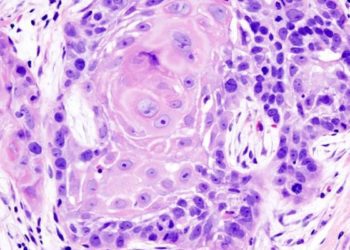Active smoking cessation intervention may provide tangible results [Project CLIQ]
1. A proactive smoking cessation strategy, which consisted of telephone counseling, nicotine replacement therapy, and removal of community barriers, increased odds of smoking cessation by twice as much as standard care.
2. When each component of the intervention was analyzed, telephone therapy with a tobacco treatment specialist and use of the community-based referral were significantly associated with smoking cessation, while nicotine replacement therapy was not.
Evidence Rating Level: 1 (Excellent)
Study Rundown: Smoking rates in the US have declined over the years, but the prevalence and burden of disease remains high amongst those of lower socioeconomic status (SES), and amongst certain racial minorities. This study, which was a prospective, randomized, controlled trial, was carried out to create and evaluate an approach to treat tobacco addiction amongst those with lower SES. The proactive smoking cessation approach consisted of telephone counseling, free nicotine replacement therapy, community-based referrals to reduced barriers to quitting, and integration of this within the patient’s electronic health record chart. The results of the study showed that participants were twice as likely to achieve smoking cessation with the proactive strategy compared to standard care.
One of the major strengths of the study was the design (i.e., randomized, controlled trial) and the fact that they were analyzing objective measures (i.e., smoking cessation). Weaknesses included the fact that participants came from a very narrow geographic area, and only those who attended primary care clinic could be recruited for the study. Also, a very small percentage (<10%) of the eligible low-SES smokers actually participated in the study, so the results may be skewed and not generalizable.
Click to read the study, published today in JAMA Internal Medicine
Click to read an invited commentary in JAMA Internal Medicine
Relevant Reading: Use of smoking cessation and quit support services by socioeconomic status over 10 years of the national drug strategy household survey
In-Depth [ randomized controlled trial]: This study, entitled Project Community Link to Quit (CLIQ), enrolled patients from 13 primary care practices associated with Partners HealthCare in Massachusetts. The investigators enrolled low-SES smokers and compared usual care with a specially designed treatment program that included telephone counseling, free nicotine replacement therapy, community-based referrals to reduced barriers to quitting, and integration of this within the patient’s electronic health record chart. Inclusion criteria were adult smokers who visited the participating primary care clinic, and had either low (<$45,000) or moderate ($45,000-$67,050) household income. Recruitment for the study was done via automated phone calls regarding smoking cessation.
In the primary, intention-to-treat analysis, the smoking cessation amongst the intervention group was significantly better than with standard care (OR 2.5; 95%CI 1.5-4.0). In terms of components of the intervention, individuals using telephone therapy to speak with a tobacco treatment specialist (TTS) were more likely to quit than those who did not (21.2% vs 10.4%, P<0.001). Nicotine replacement therapy was not significantly associated with successful quitting. Individuals who used the community-based referral were also more likely to quit than those who did not (43.6% vs 15.3%, P<0.001).
More from this author: Reperfusion therapy may be suboptimal for STEMIs requiring transfers, Statin therapy does not prevent osteoporotic fractures [JUPITER trial], Basic life support associated with greater survival in cardiac arrest, Cardiac biomarkers unnecessarily ordered in emergency departments, Secondhand smoke exposure counseling may be insufficient amongst cardiology inpatients
Image: CC/GNU Free
©2014 2 Minute Medicine, Inc. All rights reserved. No works may be reproduced without expressed written consent from 2 Minute Medicine, Inc. No article should be construed as medical advice and is not intended as such by the authors, editors, staff or by 2 Minute Medicine, Inc.





